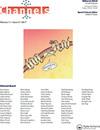语境中命名的言语行为:旧约中命名的语言学研究
IF 3.2
3区 生物学
Q2 BIOCHEMISTRY & MOLECULAR BIOLOGY
引用次数: 0
摘要
本研究试图用言语行为理论来研究旧约背景下的命名行为。为了分析旧约中出现的命名,我首先研究了希伯来语qārā和šēm,根据我的发现创建了以下扩展定义:(命名是)在特定的特定情况下,由一个对名字接受者有权威的人命名的行为,他的权威受到其他人的尊重,因此所说的名字被用来识别和代表接受者。这一点,加上对奥尔斯顿(2000)和阿卡迪(2013)的理解,形成了一个言外之语规则和条件的图式,然后我在整个旧约的九个命名案例研究中进行了测试。关键组成部分包括特定的情况、必要的条件和权力,以及在社区内发生的事件。最后,我得出结论,旧约中的命名实际上是一种言语行为,受特定规则的约束,具有重要意义。本文章由计算机程序翻译,如有差异,请以英文原文为准。
The Speech Act of Naming in Context: A Linguistic Study of Naming in the Old Testament
This research sought to study the act of naming in the context of the Old Testament using speech act theory. To analyze naming as presented in the Old Testament, I first studied the Hebrew words qārāʾ and šēm, creating from my findings the following extended definition: (naming is) the act of giving a name within particular specified circumstances by one with authority over the name-receiver, whose authority is respected by others such that the name spoken is hence used to identify and represent the receiver. This, along with an understanding of Alston (2000) and the example of Arcadi (2013), shaped a schema of illocutionary rules and conditions that I then tested in nine case studies of naming throughout the Old Testament. Key components include particular circumstances, necessary conditions and authority, and the occurrence within a community. Ultimately, I conclude naming as presented in the Old Testament is in fact a speech act that is subject to particular rules and carries great importance.
求助全文
通过发布文献求助,成功后即可免费获取论文全文。
去求助
来源期刊

Channels
生物-生化与分子生物学
CiteScore
5.90
自引率
0.00%
发文量
21
审稿时长
6-12 weeks
期刊介绍:
Channels is an open access journal for all aspects of ion channel research. The journal publishes high quality papers that shed new light on ion channel and ion transporter/exchanger function, structure, biophysics, pharmacology, and regulation in health and disease.
Channels welcomes interdisciplinary approaches that address ion channel physiology in areas such as neuroscience, cardiovascular sciences, cancer research, endocrinology, and gastroenterology. Our aim is to foster communication among the ion channel and transporter communities and facilitate the advancement of the field.
 求助内容:
求助内容: 应助结果提醒方式:
应助结果提醒方式:


